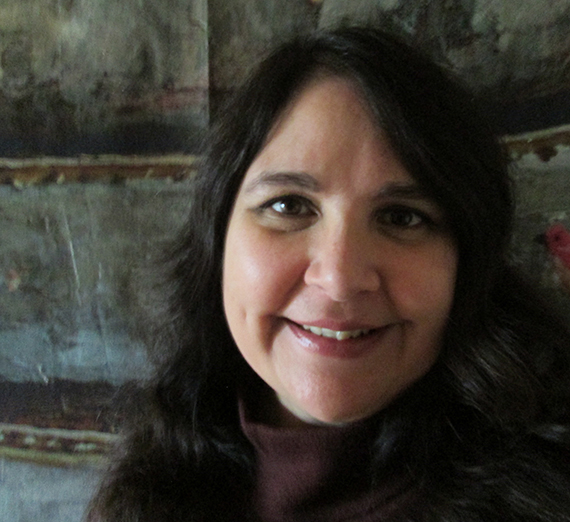Providing Insight into the Native American West

After spending two weeks learning about the history, landscape, and customs of the Indigenous Columbia Plateau, the 30 members of this summer’s National Endowment for the Humanities summer institute, “The Native American West: A Case Study of the Columbia Plateau,” returned home not only with greater insights into the narrative of the West, but also with strategies for teaching students and community members about the historical and cultural influence of this region.
Laurie Arnold, PhD, co-directed the institute held at Whitman College in Walla Walla with Whitman’s Christopher Leise. The two spent two years developing their funding application, working closely with a grant officer to ensure that their vision closely aligned with the work the NEH expected to see. Their effort was well worth the time, as they secured funding on their first attempt and received more support than proposed, enabling them to extend the institute to a larger community of scholars.
The faculty offered a diversity of perspectives on the Native American West and the Columbia Plateau, emphasizing an interdisciplinary approach that would serve each of the wide range of scholars in attendance. In reviewing applications, the selection committee gave special consideration to non-tenure track faculty of two- and four-year institutions, who typically have fewer opportunities for professional development, and they were sure to also include museum professionals, who reach different subsections of the public with very different interpretations than one might find in the classroom.
The two-week session included site visits to the Tamástslikt Cultural Institute, the Dalles, and the Northwest Museum of Arts and Culture, contextualizing the content of the course through place-based learning. Many of the scholars had never traveled to the region, so exploring the vast landscape and connecting it to Columbia Plateau scholarship was a highlight of the session.
“I think seeing the way the summer scholars engaged with the landscape was particularly meaningful,” says Arnold. “We wanted them to get a sense of when you spend three hours in the car, you haven’t even crossed ¼ of this place; it’s huge. And also that the landscape is so varied from place to place, and to realize that they still are ancestral homelands.
“When you think about Lewis & Clark traveling along the Columbia River, even though the river itself has been much changed, the landscape really hasn’t in lots of places. Imagine what Lewis & Clark—coming from St. Louis—thought when they were on these basalt cliffs and trying to figure out how to get their canoes from place to place. I think that really helped drive home a lot of the content from our conversations.”
For more details about the Institute, Arnold and Liese’s application is included on the NEH website as a sample application narrative. You can also learn more about Arnold’s work at the College of Arts & Sciences Dean’s Research & Creative Activity Forum Thursday, October 25th at 4:30 pm in Jepson’s Wolff Auditorium.
Laurie Arnold, PhD, co-directed the institute held at Whitman College in Walla Walla with Whitman’s Christopher Leise. The two spent two years developing their funding application, working closely with a grant officer to ensure that their vision closely aligned with the work the NEH expected to see. Their effort was well worth the time, as they secured funding on their first attempt and received more support than proposed, enabling them to extend the institute to a larger community of scholars.
The faculty offered a diversity of perspectives on the Native American West and the Columbia Plateau, emphasizing an interdisciplinary approach that would serve each of the wide range of scholars in attendance. In reviewing applications, the selection committee gave special consideration to non-tenure track faculty of two- and four-year institutions, who typically have fewer opportunities for professional development, and they were sure to also include museum professionals, who reach different subsections of the public with very different interpretations than one might find in the classroom.
The two-week session included site visits to the Tamástslikt Cultural Institute, the Dalles, and the Northwest Museum of Arts and Culture, contextualizing the content of the course through place-based learning. Many of the scholars had never traveled to the region, so exploring the vast landscape and connecting it to Columbia Plateau scholarship was a highlight of the session.
“I think seeing the way the summer scholars engaged with the landscape was particularly meaningful,” says Arnold. “We wanted them to get a sense of when you spend three hours in the car, you haven’t even crossed ¼ of this place; it’s huge. And also that the landscape is so varied from place to place, and to realize that they still are ancestral homelands.
“When you think about Lewis & Clark traveling along the Columbia River, even though the river itself has been much changed, the landscape really hasn’t in lots of places. Imagine what Lewis & Clark—coming from St. Louis—thought when they were on these basalt cliffs and trying to figure out how to get their canoes from place to place. I think that really helped drive home a lot of the content from our conversations.”
For more details about the Institute, Arnold and Liese’s application is included on the NEH website as a sample application narrative. You can also learn more about Arnold’s work at the College of Arts & Sciences Dean’s Research & Creative Activity Forum Thursday, October 25th at 4:30 pm in Jepson’s Wolff Auditorium.
